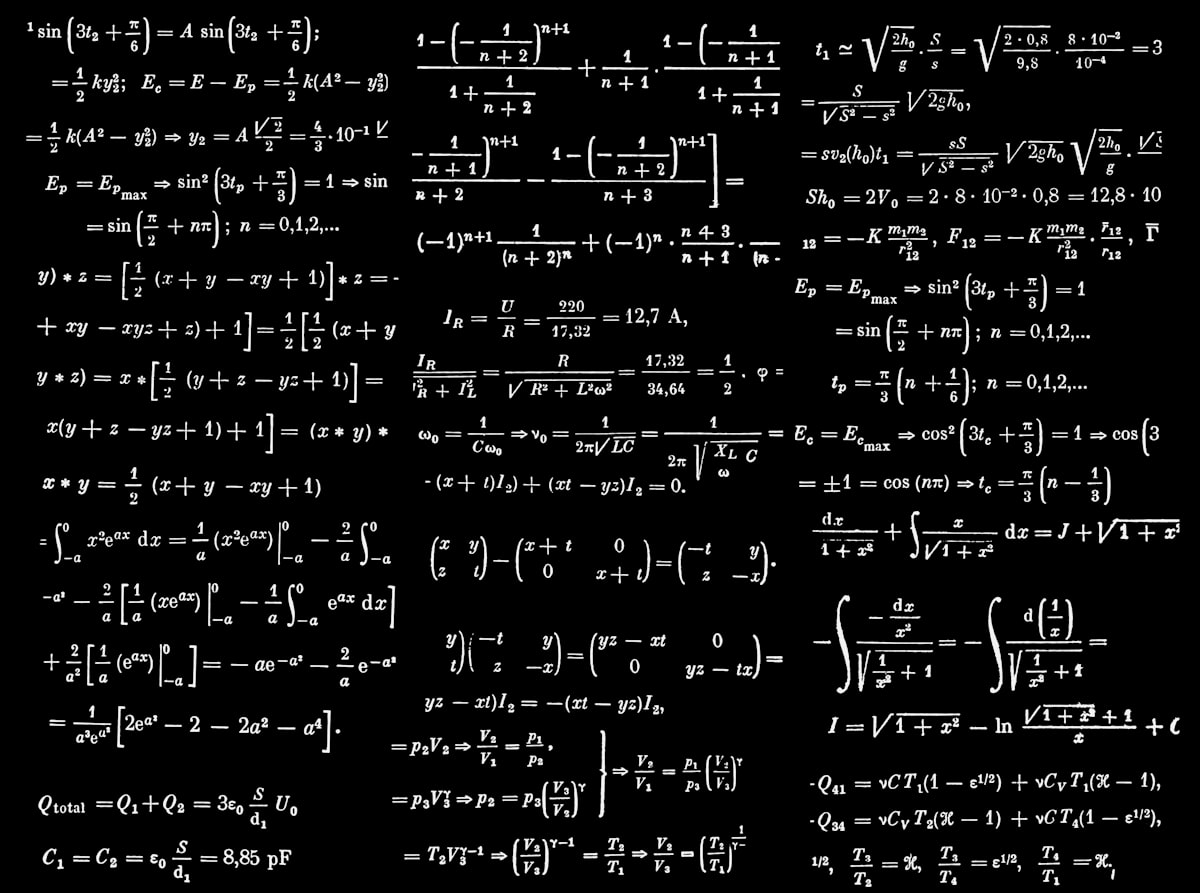Why I think You should learn more about Physics

👋 Hey friends,
I've recently toyed with the idea of starting a YouTube channel centred around my personal life and how we can delve deeper into the things we love. Physics takes the top spot on my list of subjects, shaping my career aspirations. My goal is to explore how to make the seemingly complex world of physics more accessible and enjoyable to study.
However, before diving into the fun of learning about physics, let's explore why immersing oneself in this intricate world is worthwhile. Let's talk about why I believe you should learn more about Physics.
🌍 Learn How to Solve ANY Problem
In our daily lives, we're constantly faced with various challenges: from optimizing commute routes to managing finances efficiently, organizing schedules to accommodate family, work, and friends, to troubleshooting minor technical glitches. While numerous tools can aid in addressing these specific issues, relying on intuition often emerges as the faster and simpler choice.
Through delving into the realm of physics, you realize that many encountered daily dilemmas can be resolved using relatively straightforward mathematical logic. Developing a sense of logical intuition empowers you in virtually any situation involving classical physics. (I'll primarily focus on classical physics, as you won't likely find yourself calculating an electron's position in everyday tasks.)
Determining the quickest route from point A to B becomes a problem of distance and time. Thinking through this problem using physics principles, you'd recognize the need to seek the most efficient average velocity. For instance, taking a highway for 50% of the journey and a slower road for the remaining portion might not yield the best average velocity, logically speaking.
Calculating the average velocity requires summing up all velocities and dividing by the number of time intervals:
\( \Delta v=\dfrac{\sum v_{i}}{n}\); \(n \rightarrow interval\)
Upon calculation, you might discover that choosing a route with a higher average speed results in a longer total distance covered but a faster overall journey. This realization stems from understanding the integral under the velocity curve:
\(s_n(t)=\int_{t_0}^{t_1}v_n(t)dt \gt s_{other}(t)\)
This insight enables you to comprehend scenarios where travelling at a higher average speed might demand a longer distance, yet it's ultimately faster than travelling at a much lower velocity for a shorter overall trip.
While you wouldn't perform these calculations in real-time (apps like Google Maps provide precise information), understanding that these calculations are based on fundamental principles of distance, time, and displacement equips you with the ability to interpret them.
It's akin to being at a supermarket, seeing a sign offering a 30% discount on a $90 item, and instantly knowing it now costs $63. This intuitive understanding of the physical world, rooted in logic, stands as one of the key reasons why everyone should delve a bit into physics.
It's not solely about the specific material you'll learn; it's about developing skills that enable you to tackle any problem efficiently.
If you have enjoyed this episode of FRIDAYS FINDINGS and you don't want to miss out on any future episodes consider subscribing for FREE.
Thanks again and I'll see you soon.
Victor (@observethecosmos)
✍️ Quote of the week
“Every object is a mixture of lots of things, so we can deal with it only as a series of approximations and idealizations.”
― Richard P. Feynman, The Feynman Lectures on Physics
🎟 Want to advertise on Fridays Findings? → Send an E-Mail
Check out some of my social media pages to learn more about math, science and astronomy:
🎬:Youtube